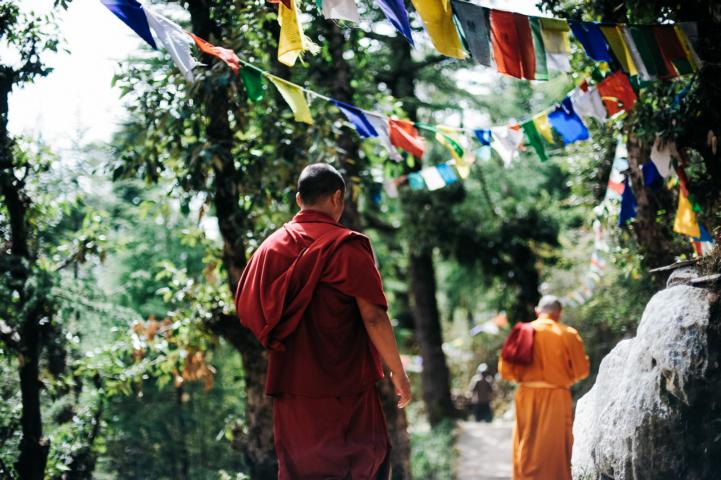Attending a Vipassanā retreat
Author: Julian Frebel
A visit to a Vipassanā retreat shows: Meditation is also work and a struggle against inertia. This honest and humanly comprehensible account of his experiences shows what happens when a young man embarks on a spiritual training camp and goes through the odds.
I walk the last one and a half kilometers from the Meppen train station to the youth hostel. In my backpack is luggage for ten days. When I arrived, it was already dark. Even at registration, there is a strict separation between men and women. This is how the ten-day Vipassanā retreat, which I attended over New Year’s Day 2014, begins.
MEDITATION
A tight program, accompanied by strict rules, awaits me. About nine hours of meditation a day, a daily schedule that starts at 4 a.m. and ends at 9:30 p.m. in the evening. Every day the same schedule: gong for getting up, gong for morning meditation, gong for breakfast, gong for morning meditation, gong for lunch, and so on. And all of this in complete silence – with the exception of conversations with teachers and course supervisors. With 100 other meditators, I set out on a profound and stirring process.

For the first three and a half days, we practice Ānāpāna – observing the breath. “Feel your breath as it passes along the entrance to your nose, without influencing the course of the breath. Don’t manipulate it – just observe objectively,” a voice sounds from the speakers. A recording by the now deceased S. N. Goenka, who brought the tradition of “pure” Vipassanā back to India and, with the help of his tape recordings, to the whole world – including Meppen.
I realize that meditation is work. Like lifting weights, only for the mind.
To observe the breath without controlling it is incredibly difficult for me. I almost don’t manage it at all and keep drifting off into thoughts. “If you can get yourself out of your thoughts every five minutes and back to the breath, that’s good to start with.” Okay – I can do that. Still, I feel more and more uncomfortable in my skin as I watch the breath, but also realize how much my breath is weighed down by compulsions and anxieties that often “jam” the flow of the breath.
Image credit: © wordpress.com
This article appeared originally on the German Homepage Tattva Viveka: Von inneren Kämpfen auf dem Wege zur geistigen Meisterschaft




